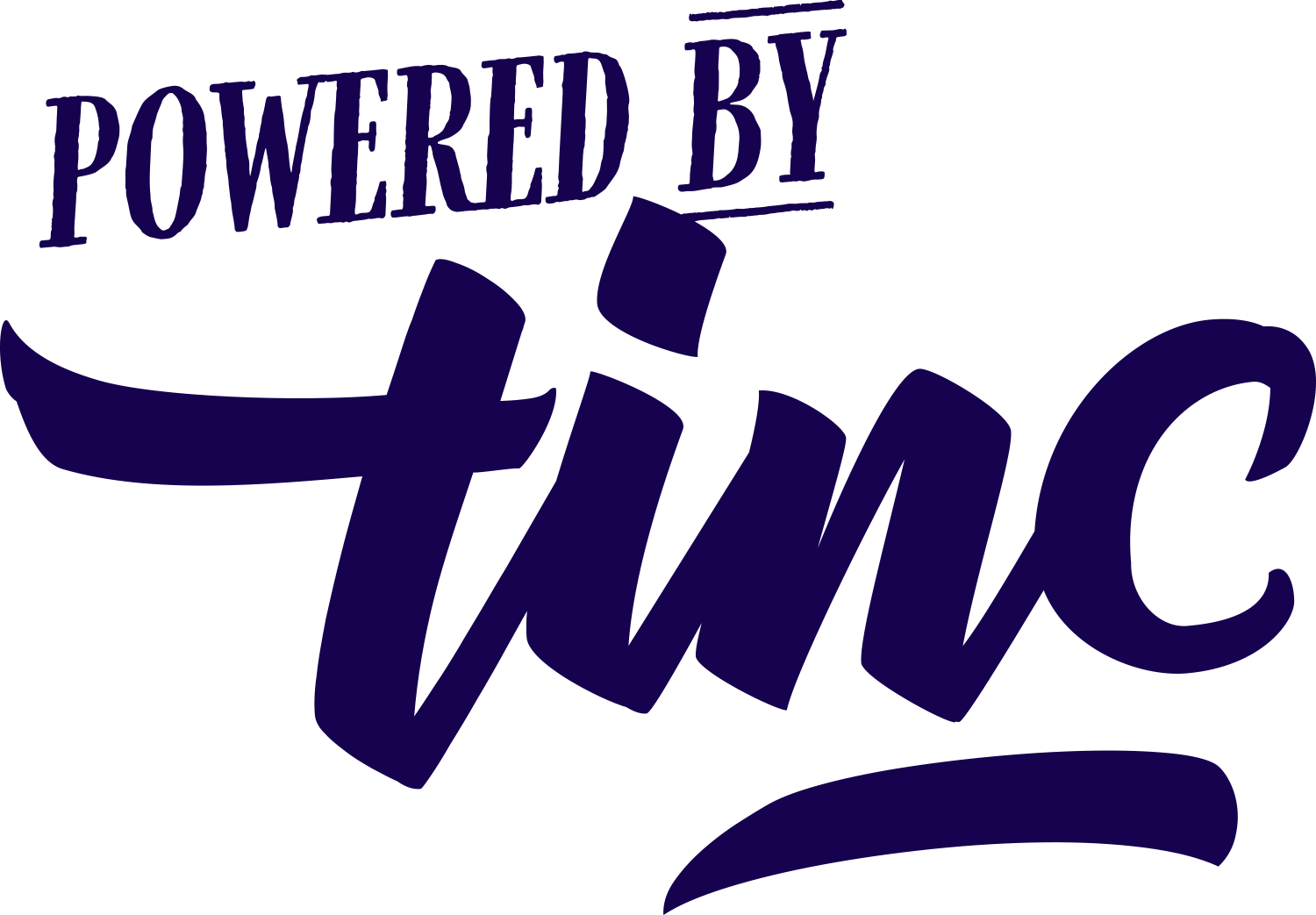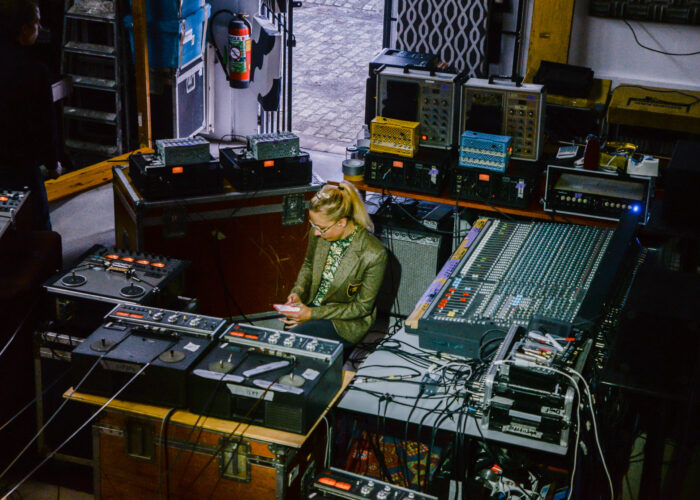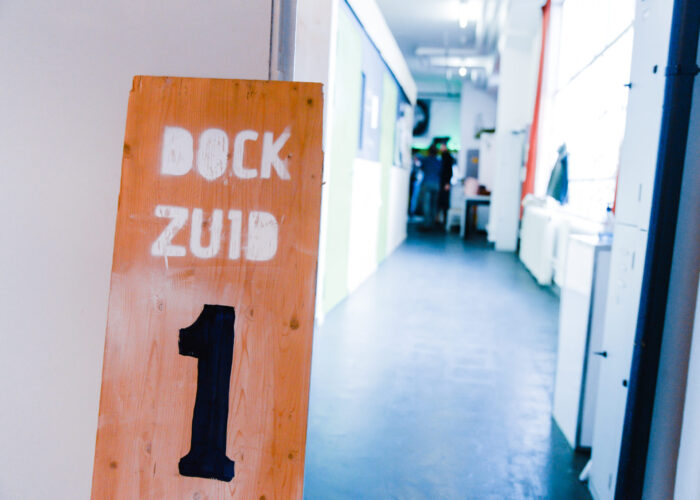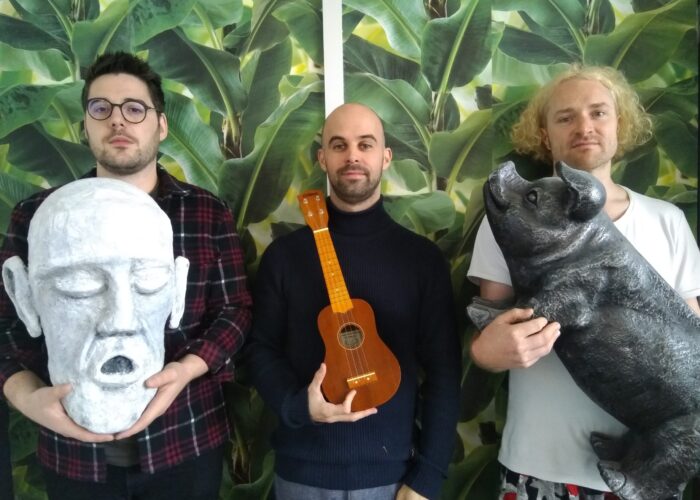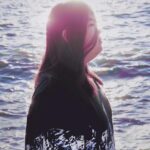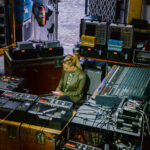The platform for music and musicians Dock Zuid in Tilburg organized their first batch of residencies in October 2021. They have been initiated by pianist Rogier Telderman, one of the people behind Dock Zuid. He invited saxophonist, composer and arranger Phil Meadows from London and the Amsterdam based drummer Gerri Jäger for three days of sessions. Meadows started similar activities in London. Jäger has for some time wanted to establish a space in Amsterdam that should work along the same principles as Dock Zuid. They took time to reflect on their experiences during these residencies.
text: René van Peer
photo: Seye Cadmus, Omar
TELDERMAN interplay
Telderman describes Dock Zuid as both a building and a collective. “This residency is a first offshoot to start a movement, generating new ideas through talks. I met Phil online via social media during the latest lockdown. We had a conversation on how to support music and musicians. I was interested in his approach to the scene and music, and his involvement in that. I didn’t know him as a musician.”
Jäger met Telderman through a talent project in Breda. He decided to participate only ten days before it started. “I wanted to do it. It is a great idea and a luxury to be able to work three days on music and then present the result, to explore one’s role in such a collaborative effort, and in the process find music that you are comfortable with.” Phil agrees with that. “I like the mentality, sharing and developing musical ideas and discussing the wider cultural ideology. What we are doing here is not predetermined by having to play gigs. There is room to get to know each other personally. The whole structure is quite open. No-one had an expectation of what it would have to be. We just play and explore sound to find a way to communicate. We also introduced ideas that we brought: charts and tunes, abstract ideas. We had a passage based on morse codes. Although I trained as a jazz musician, I don’t consider myself one. On the other hand the skills I learned, are transferable to other types of music. I love all music. To me it’s important to bring different genres together.”
It was Gerri who introduced the morse codes as the basic structure for a piece. He connected a delay and a harmonizer to his drums. “Drummers generally have a basic role. For me the challenge is to feel like a producer, using a large array of electronic sounds. Since school I haven’t played ‘jazz-jazz’, but it’s great to apply the tools in the personal genre that you choose. The spectrum is so broad, there is no end or beginning. You just play the music that you love. I choose what sounds I bring, what I like best with my processing gear. Two of the pieces come from a carte blanche that I did with Raphael Vanoli. For one of them I use the sound of falling raindrops. The rhythms get very sparse at the end. It’s a test of everybody’s patience.”
Phil takes a step back to view the residency and Dock Zuid in a broader context. “The wider narrative is to learn what Rogier wants to achieve here. In London we are trying to do similar things. I can take home the thoughts that we share here. It is important that cultures connect, and share their successes and failures. Often, when you talk about things beyond music, it doesn’t open a dialog. I am still processing exactly what I am going to take with me. It will probably be simple things. The idea to make music and create environments without feeling stress. In London I work with the Engines Orchestra, which spends two days of rehearsals on a nineteen minutes piece, nurturing an organic process that allows music to develop itself. Music has its own duration. We bring lots of people from the industry together, who share skills and work together for the collective good. Anyone with creative ideas has access to the ensemble. They can pitch ideas with us, we organize funding and performances. We perform at commercial jazz festivals. But we also work with children from poor, struggling neighborhoods. It all comes from the drive to make nice things happen.”
Joining forces is inspiring, responds Gerri. “I can apply that to my place, using each other’s strengths to get somewhere. The last ten to fifteen years have seen an ever growing individualism. That has an impact on a larger scale. I have been talking to friends to set something up in Amsterdam, but they are afraid of the amount of work that is takes.”
According to Phil it is important to seize the opportunity to do something. “Just like what Rogier is doing here and what we do in London. It can create a vortex. We can exchange, do things in return. We can offer to help, find ways to help. Work in a more conversational mode.”
The author – René van Peer
René van Peer has been a music journalist since 1987. He writes for Gonzo (circus) and various other media in the field of music. He is by definition concerned with eccentric music. Electronic, improvised, sound art and world music. Powered by TINC asked René to reflect on two residency-programmes at Dock Zuid.
